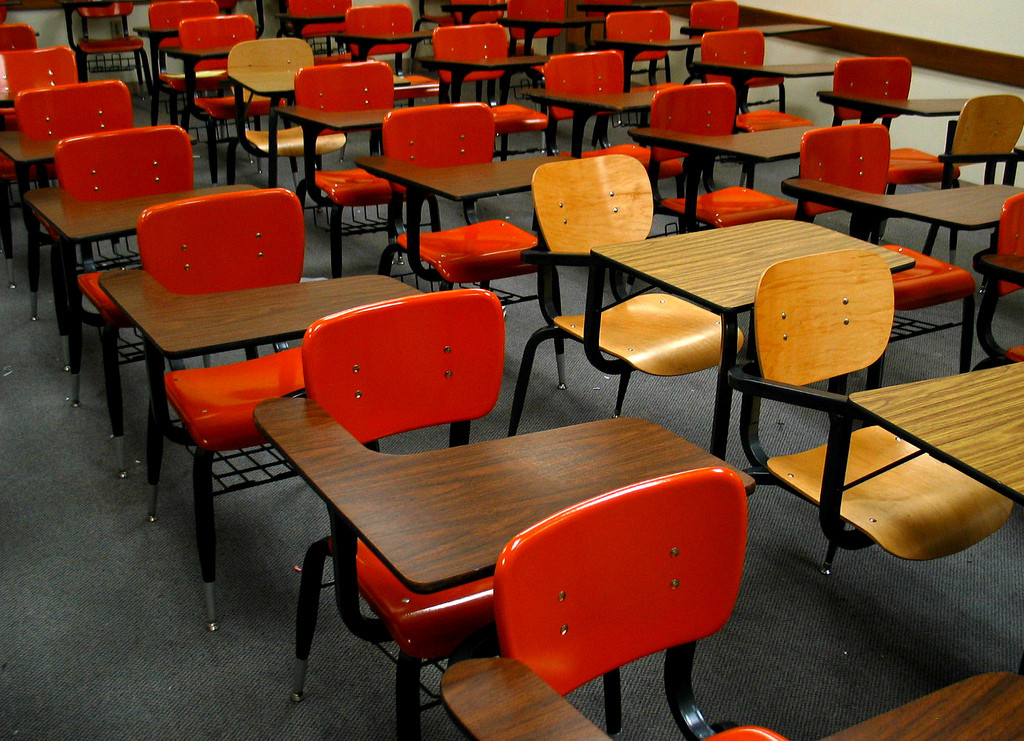Advice for Armenia Against Leading Western Educational Reform Tendencies
Special for the Armenian Weekly
Armenia needs talented youth in order to become a competitive player in the global market economy. The changing landscape of its schools due to school privatization, however, will eventually undermine its efforts. And here is why.
School privatization—a fashionable Western education reform tendency—will contribute to greater inequity in the Armenian education system, which will further put at risk the prosperity of its youth and its society.
Growing up in Armenia in the 1990’s, I remember walking to school with my friends from our neighborhood and learning in a classroom made up of children from diverse socio-economic backgrounds. It did not matter whether you came from a privileged or underprivileged family—we all had equal opportunities to receive a quality education and become competent citizens of our society.
In Armenia nowadays, however, more children from affluent families go to private schools and those who cannot afford the high price tag of more modern and academically rigorous alternative schools go to public schools. The latter lack the resources to be able to compete with the private schools, thus earning a reputation of being ineffective and less competent. Thus, because they cannot afford to attend the “better” schools, more and more disadvantaged Armenian children will miss the opportunity to attain better educational outcomes and better chances in life.
The proponents of these “school choice” and market-based principles, however, argue that school privatization creates competition, which intuitively leads to school improvements and better educational outcomes for all children. But some leading experts in the West argue that competition in the education sector simply does not work the same way as it does in other sectors of society.
After all, in competition, especially with unequal resources, someone always loses. And if such a corporate-style approach becomes a standard in the Armenian education sector as it is in most Western countries, who do you think will be the losers? It will be the majority of the Armenian children who will not have equal opportunities to grow into highly skilled and competent global citizens.
And if Armenia further encourages the rise of the private schools for a selected few and does not strengthen its public schools for all children, it will eventually lose its bid to become a world player in the global market economy. It just won’t have the talent it needs to achieve that goal.
What then can Armenia do to have a world-class education system? It can follow a different approach that renowned Finnish education expert Pasi Sahlberg recommends.
Armenia should build a strong public school system with equitable educational policies where the state, the teachers, and the schools work together collaboratively to ensure that all children have equal opportunities to receive high-quality education, regardless of their background. Armenia should also create highly competitive teacher education and rigorous teacher professional development programs to establish a highly qualified teacher workforce. It should also pay its teachers well enough to attract and sustain the talented professionals it needs. Almost all high-performing education systems in the world, including those of Finland, Singapore, South Korea, and Japan, do exactly that.
Can Armenia learn from these successful education systems? Certainly, yes! Its implementation of early childhood education programs—another key indicator of educational success—demonstrates that it can certainly borrow ideas from other countries, including those from the West. However, it should do so very carefully because not all Western ideas are good, as even some Western experts warn.
Source: Armenian Weekly
Link: Do What the West Says, Not What It Does

